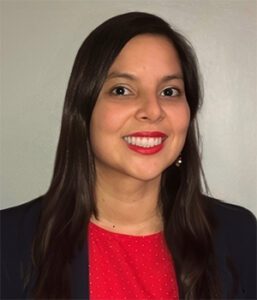Program Information
The Department of Sociology at the University of Central Florida includes 22 faculty members with interests in crime and deviance, domestic violence, race and ethnicity, homelessness, gender, health, aging, social psychology, religion, environmental sociology, and substance use.
The sociology major consists of 14 courses, a total of 45 credit hours. Students must complete the following five required courses: Introduction to Sociology, Social Theory, Applied Social Statistics, Research Methods, and Data Analysis. Students must also complete nine restricted electives in sociology. For these restricted electives students have the flexibility to take any sociology course. These courses cover a wide-ranging list of topics including crime and deviance, health, inequality, culture, religion, environment, social psychology, sociology of sport, family, and substance use. The department also offers five different minors: Crime, Law and Deviance; Diversity and Social Inequality; Mass Culture and Collective Behavior, Medical Sociology; Sociology. All minors offered by the department include a total of 6 courses, a total of 18 credit hours.
A hallmark of our undergraduate program is that all of our students conduct their own research under the supervision of a faculty mentor. This process allows students to sharpen their analytical abilities and develop skills that will help them gain admittance and be successful in graduate school. Given the sociology programs focus on developing research skills, many of our students participate in programs offered by the Office of Undergraduate Research at UCF and also present their research at academic conferences. At a large university like UCF, research provides students with a unique and more intimate learning environment.
Students who graduate with a BA in sociology have a varied skill set that will prepare them for life after graduation. Sociology is an excellent major for students interested in graduate school in sociology, criminology, counseling, public administration, or law. Sociology graduates find employment in a wide-range of fields including, government, business, education, research, criminal justice, health professions, and social service.
Undergraduate Program Director
For advising or other questions, please email Dr. Angela Vergara at angela.vergara@ucf.edu to request an appointment. Please provide as much information as possible regarding your request.
Thank you!
Programs
The Sociology curriculum emphasizes critical examination of various components of society. The purpose of the curriculum is to increase students’ social awareness and their abilities to employ a sociological perspective to interpret social institutions and behavior. Sociology includes the study of interpersonal interactions, groups, organizations, and societies through the application of theoretical approaches and the use of qualitative and quantitative methods.
Sociology courses are directly relevant to many contemporary issues, including murder and violent crime, domestic violence, global warming, alcohol and drug abuse, popular culture, and changes in the family. The department offers groups of courses in several areas, including social institutions, the environment, crime and deviance, popular culture, family, and diversity and social inequalities.
Degrees
- Sociology B.A. / B.S
- Social Sciences B.S
Minors
- Sociology
- Crime, Law, and Deviance
- Social Structures & Opportunity
- Global Sociology
- Mass Culture and Collective Behavior
- Medical Sociology
Special Opportunities
Internships
The Department of Sociology, as well as individual faculty members, maintains close relationships with many community partners. Students majoring in Sociology are able to work as interns in many of these agencies and companies to receive credit towards their degree.
Read MoreService Learning
Many Sociology courses address community needs and enhance the learning experience through service-learning opportunities that help students use academic skills and classroom knowledge to solve community problems.
Read MoreAlpha Kappa Delta
Alpha Kappa Delta is the International Sociology Honor Society. Their purpose is to seek to acknowledge and promote excellence in the scholarship in the study of sociology, the research of social problems, and such other social and intellectual activities.
Read MoreResearch Opportunities
The University of Central Florida offers numerous opportunities for undergraduates to pursue research in various disciplines under the direction of a faculty member. This intensive research opportunity enhances the academic experience and challenges students to strengthen their critical, analytical, and writing skills. You can find out more at the UCF Office of Undergraduate Research or the Office of Undergraduate Studies.
Honors in the Major (HIM)
An Honor in the Major is UCF’s most advanced undergraduate research program. It is designed to assist juniors and seniors who are intent on developing their own independent research project. Students do not have to be Honors students to take advantage of the HIM program; it is available to all qualified UCF students.
More InfoOffice of Research at UCF
The Office of Research budgets $100,000 annually to match contract and grant dollars for principle investigators who hire undergraduates to assist in sponsored research.
More InfoUCF McNair Program
The McNair Scholars Program is designed to prepare students from low-income, first-generation and traditionally underrepresented groups for doctoral studies. The program prepares undergraduate students for doctoral studies through involvement in research and other scholarly activities.
More InfoResearch and Mentoring Program (RAMP)
The RAMP program is designed to provide a research experience working closely with a faculty mentor for students who may be interested in pursuing graduate education. In addition, the students participate in a variety of workshops designed to increase their awareness and knowledge of graduate school education. The aim of this program is to encourage more students from those populations that are traditionally under-represented in graduate education to attend graduate school. Undergraduate students participating in this program receive financial support.
More Info

